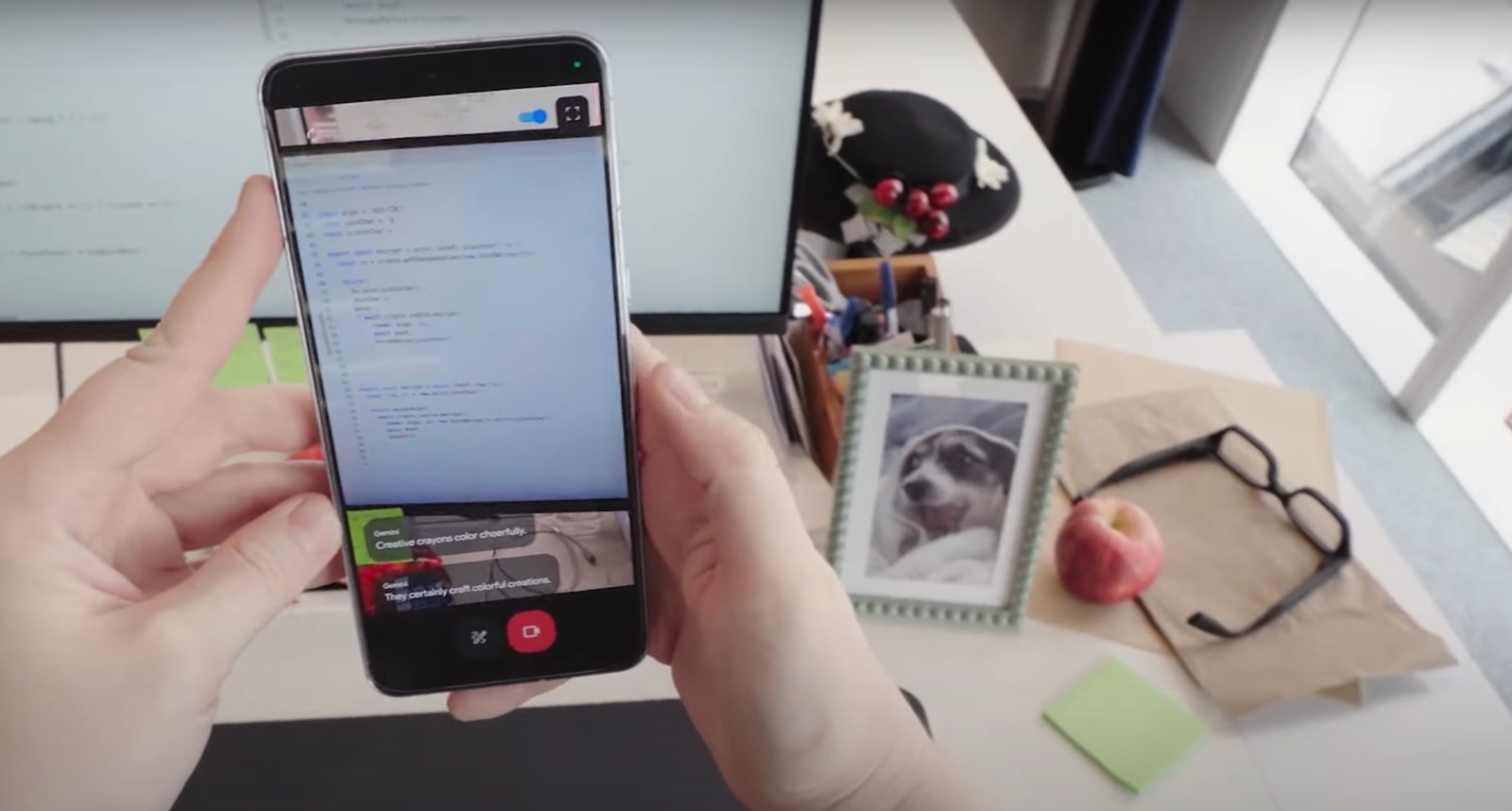The Galaxy S25 will be the star of Samsung’s Unpacked event in mid-January, but the keynote might bring a few more interesting surprises. One is the Galaxy S25 Slim, an ultra-thin version of the Galaxy S25 that will compete against the upcoming iPhone 17 Air. The other surprise announcement that might drop at the end of the main Galaxy S25 presentation is Samsung’s first XR headset, which has been in the making for at least a couple of years.
A report a few days ago said the XR headset will not be the Vision Pro rival we once thought it might be. Instead, Samsung is focused on smart glasses like Meta’s Ray-Ban glasses. We may have even seen a prototype of the Samsung device during Google’s Gemini presentation at I/O in May (pictured below).
We now have a different leak from South Korea that provides a timeline for the Samsung XR headset. The gadget might be unveiled at Unpacked, but Samsung won’t release it until the second half of 2025. More interesting is a claim that the XR headset will feature augmented reality (AR) capabilities.
The mid-November report said Samsung plans to make about 500,000 XR headset units. At the time, it was said that the device was expected to look and feel a lot like the Meta Ray-Ban smart glasses. It was expected to run on Qualcomm’s AR1 chip and feature a 12-megapixel camera that gives Gemini eyes. This product name-checks all the expected parties. Samsung invited Qualcomm and Google on stage during the Galaxy S23 launch event in February 2023 to tease the “next XR experience.”
Korean-language news site SEDaily now paints a slightly different picture that makes the XR headset sound more exciting than before.

The report mentions a Samsung project called “Infinite” that should yield a prototype of the XR headset in the first half of the year. Samsung will unveil the product during the Galaxy S25 Unpacked event, but it won’t give it a formal release date.
If that sounds familiar, that’s what Samsung did with the Galaxy Ring this year. The wearable was made official at Unpacked in January, and then it made a more formal appearance at MWC in Spain. But it wasn’t until July that Samsung launched the Galaxy Ring.
What’s different from other reports is that SEDaily claims that Samsung’s XR headset will be an AR glasses concept. That description makes it sound more sophisticated than typical smart glasses products, which do not have AR features.
The report also says that Samsung plans to sell only about 50,000 units, or 10% of the previous report’s estimate. Samsung reportedly aims to ship more than 20,000 units in the third quarter and another 30,000 units in the fourth quarter.
While price points aren’t mentioned, this rather conservative approach might suggest the XR headset is more expensive than the Meta Ray-Ban glasses. Another explanation concerns Samsung’s desire to save costs. If Samsung is launching only a pair of basic smart glasses, it might want to see what sort of demand it has to deal with before bumping up production.
The report goes on to say that the XR headset business is part of Samsung Mobile, the division that makes smartphones, watches, and tablets. Interestingly, XR devices might be key to Samsung’s post-smartphone future, according to a machine translation of the report:
Samsung Electronics considers XR devices to be the future food [sic] business that will succeed smartphones, which are called the ‘Galaxy myth,’ and is focusing on research and development (R&D).
Meta unveiled a clunky but functional AR headset earlier this year. That prototype costs about $10,000 to make, so it can’t possibly become a commercial product anytime soon. With all that in mind, I can’t help but wonder what sort of AR features the rumored Samsung XR headset will have to offer.
Also, I would not be surprised to see two different products from Samsung next year. One could be an affordable smart glasses device similar to the Meta Ray-Ban glasses. The other might be a more advanced, more expensive AR headset. That’s all speculation on my part and some wishful thinking. There’s no indication we’re looking at two separate products.








